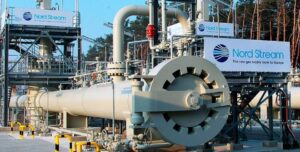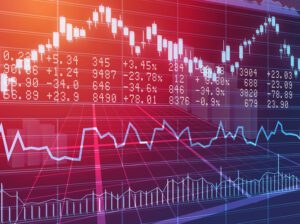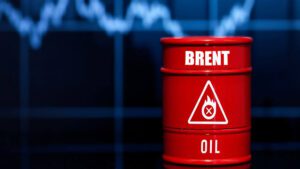
During a round table in Brussels on September 27, the companies signed a statement at the initiative of the European Commission in which they pledged to help reduce the cost of transfers to Ukraine by up to 3%, the press service of the National Bank of Ukraine (NBU) reported on Wednesday.
According to the report, the heads of Visa, Mastercard, Wise, Extrabanca, Ria Money Transfer, Small World, TransferGo, PrivatBank, Oschadbank, Ukrgasbank, Raiffeisen Bank, PUMB, A-Bank, NovaPay, Ukrposhta, UFG PJSC signed a joint statement.
They committed to provide competitive transfer services to the Ukrainian diaspora, internally displaced persons from Ukraine and anyone who wants to support Ukrainians and transfer funds to Ukraine.
Deputy head of the NBU Oleksiy Shaban pointed out that it is possible to receive transfers in Ukraine using all available methods that were in peacetime (through international systems for transferring funds from card to card via SWIFT using the IBAN number).
He added that at the beginning of the war, most international funds transfer systems completely abolished fees for transfers to Ukraine.
In general, according to preliminary estimates of the National Bank, in January-July 2022, $7.6 billion was transferred to Ukraine, which is 5.7% less than in the same period of the previous pre-war year.
The war in Ukraine led to a decrease in transfers through official channels by about 12%. At the same time, the flow through informal channels increased by almost 3%.
According to NBU statistics, of all funds transferred to Ukraine from abroad in January-July 2022, about a quarter (24%) came through international transfer systems.

The final of Europe’s largest IT competition, DEV Challenge XIX, will be held online and offline in Ukraine and Poland on October 28 and 29, the organizers told Interfax-Ukraine.
The organizers cooperate with the Ministry of Digital Transformation, the Ministry of Foreign Affairs and the Ministry of Defense. This year, competition tasks from UNICEF, the Ministry of Digital Development, the Ministry of Defense and the Army of Drones will be presented.
“Modern warfare is won by modern technologies, so the effective implementation of the best solutions is a strategically important step for victory. High-quality and creative digital solutions for the Ukrainian army are no less important than traditional methods of warfare,” the press service of the director for digitalization of the DC “Ukroboronprom” quotes Timur Korytny.
The DEV Challenge XIX championship started in early September 2022 and will last for two months. Competitions are held in three stages: qualification, online round, final. The judges of the Championship are top professionals of the international IT community from Europe, the USA and Australia.
Already registered more than 1800 participants. The DEV Challenge takes place online, with the exception of the hybrid final. The final was traditionally held in Kyiv, both offline and online. This year it was decided to hold it simultaneously in two countries, Ukraine and Poland. In particular, they already name one of the offline locations of the DEV Challenge XIX final, the Polish city of Lodz, the Ukrainian city is still being chosen.
According to the organizer of the championship Evgenia Bespalova, every year the competition becomes an increasingly powerful tool for inventing technological solutions for the critical tasks of society.
“DEV Challenge participants receive tasks from our partners. Since 2019, we have been actively cooperating with ministries, involving top IT specialists in solving urgent issues of the state. Thanks to the championship, the country is accelerating digitalization processes in various areas. This year we are working on the development of technologies for recovery Ukraine, assistance to the Armed Forces of Ukraine,” Bespalova said.
Among the tasks set are solutions for the protection of children and other humanitarian issues. Participants receive real cases of DEV Challenge partners in the commercial sector, as well as non-profit organizations.
Bespalova gave several examples of online round tasks. In the Frontend and UI Design nomination, a task from the Come Back Alive Foundation is presented: participants will develop an interactive map of crimes during the war based on the collected database.
Participants in the Manual QA nomination will test a mobile application for the development of preschoolers – “Numo” from UNICEF.
In order to increase the number of donations for children and hospitals, the Svichado Charitable Foundation needs to update the site, which will be done by participants in the Product Design nomination.
“As for the final, we are actively continuing to collect tasks from our stakeholders – UNICEF, Ukroboronprom, the Army of Drones and the Ministry of Digital Development,” Bespalova said.
DEV Challenge has been taking place in Ukraine since 2012, founded by Ukrainians Igor and Evgeniya Bespalov. For 10 years, 18 Championships have been held, in which more than 22,000 specialists from different countries took part.

The investment company BGV Group Management has launched a new plant for the production of crushed stone products in the Zhytomyr region, investments in construction amounted to $22 million.
“Our company BGV Group Management has officially launched a state-of-the-art crushed stone plant. Fully automated, with the latest technological Swedish SANDVIK equipment, mining equipment and infrastructure built from scratch. We did all this literally in the forest, greenfield and during a full-scale war in the country,” said member of the board of directors of the investment company Sergei Voitsekhovsky.
According to him, the production capacity of the plant is 1.5 million tons of rock mass per year. Granite Quarry LLC operates on the basis of the Zherevsky deposit with an area of 63.2 hectares, the reserves of which amount to 46 million cubic meters of rock.
The opening of the plant will create 200 new jobs in the region, Voitsekhovsky emphasized.
BGV Group Management is an investment company of Gennady Butkevich, developing businesses and projects in the mining, processing, energy efficiency, retail and development sectors.

German authorities believe that the Nord Stream and Nord Stream 2 gas pipelines will permanently fail if they are not quickly repaired, Tagesspiegel reported on Wednesday, citing sources in the German government.
“If the gas pipelines are not quickly repaired, a lot of sea water will get into them, and the pipelines will corrode,” the newspaper notes.
After the incident with gas pipelines, the German authorities intend to strengthen control over the movement of ships in their territorial waters. Berlin also intends to pay more attention to the protection of critical infrastructure, coastal areas of the country, terminals under construction for receiving liquefied natural gas and telecommunications cables passing under water.
As reported, on the night of September 26, a leak occurred on one of the lines of the Nord Stream 2 pipeline. It happened in the Danish exclusive economic zone southeast of Bornholm. Also, gas leaks were recorded from both lines of the first Nord Stream northeast of Bornholm.
According to the Tagesspiegel, the German Federal Intelligence Service and state security agencies suspect that sabotage was the cause of the incident.

Quotes of futures for US stock indices change without any dynamics on Wednesday.
Investors fear that the US Federal Reserve’s determination to fight persistently high inflation will continue to push up borrowing costs, hurting the economy and corporate profits, MarketWatch writes.
“Our main view is that further tightening of US financial conditions is unlikely to stop until the economy either enters a clear recession or shows steady progress on inflation,” wrote Goldman Sachs analyst Dominic Wilson.
The yield on ten-year US government bonds rose above 4% per annum during trading on Wednesday, updating the maximum since April 2010, according to The Wall Street Journal. Moreover, the yield of US government bonds shows a record growth rate in four decades amid fears that the Fed is not going to abandon its policy of raising rates to combat the highest inflation in four decades.
Meanwhile, Hurricane Ian is approaching the US state of Florida, which has almost reached the fifth category on the scale of hurricane winds, the Associated Press reported on Wednesday.
According to the US Air Force, “Ian” rapidly gained strength in the Gulf of Mexico and at 7 am local time (14:00 KST) was 105 km from the coastal city of Naples, which is located in Florida.
The state’s losses from the effects of the hurricane could exceed $45 billion, Enki Research expert Chuck Watson predicted. Ian could be one of the eight worst hurricanes in US history, according to the National Oceanic and Atmospheric Administration.
Shares of Tyson Foods Inc. rise in price by 0.5%. The American food manufacturer made changes in the company’s management, including replacing the financial director.
Papers Lyft Inc. decrease by 1.1%. The American taxi ordering service will stop hiring new employees before the end of this year.
Share price of Apple Inc. decreases by 2.3%. The company is abandoning plans to increase production of new iPhone 14 models due to weak demand, Bloomberg writes, citing people familiar with the matter.
The value of the December futures E-mini on the Dow Jones index by 15:43 CSK increased by 0.37% and amounted to 29310 points. Quotation of the December E-mini futures on the S&P 500 rose by this time by 0.23%, to 3669.50 points. Futures on the Nasdaq 100 index for December lost 0.13% and reached 11,319 points.

Oil prices will stabilize during trading on Wednesday afternoon after falling in the morning.
The cost of November futures for Brent crude on the London ICE Futures exchange by 14:50 UTC on Wednesday is $86.37 per barrel, which is $0.1 (0.12%) higher than the closing price of the previous session.
The price of futures for WTI oil for November in electronic trading on the New York Mercantile Exchange (NYMEX) rose by this time by $0.23 (0.29%), to $78.73 per barrel.
The rise of the US dollar, which resumed on Wednesday, has a negative impact on the market. The appreciation of the dollar against the backdrop of prospects for tightening US monetary policy leads to the fact that the purchase of commodities becomes less attractive for holders of other currencies.
Investors are also concerned about a potential decline in oil demand due to the risks of a global economic recession amid rising interest rates by the world’s central banks. Analysts at Goldman Sachs downgraded their forecast for oil prices for next year to $108 per barrel from $125 per barrel earlier.
Meanwhile, traders remain concerned about the prospects for supply, which is associated with the suspension of production in the Gulf of Mexico due to the approaching Hurricane Ian. The US National Hurricane Center expects Ian to reach Florida as early as Wednesday.
Due to the approach of the hurricane, Chevron and BP announced the suspension of four production platforms in the Gulf of Mexico.
Market attention is gradually shifting to the upcoming meeting of the OPEC + alliance, which will be held on October 5. Analysts believe that the alliance may decide to actively cut oil production due to falling prices.